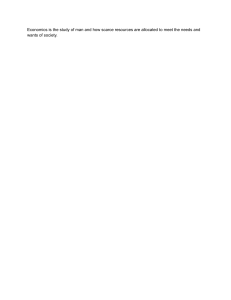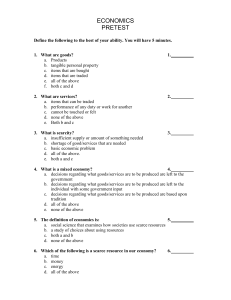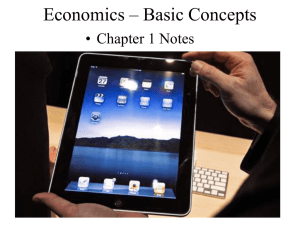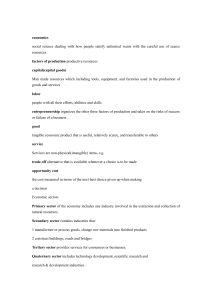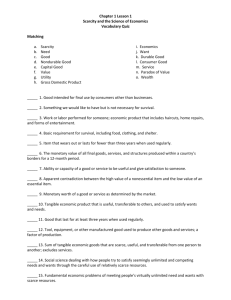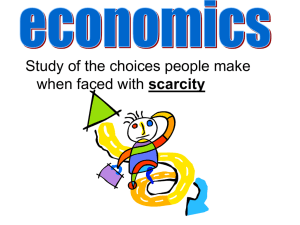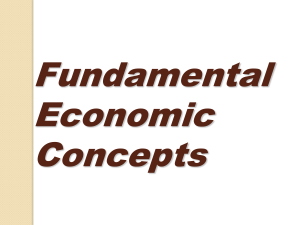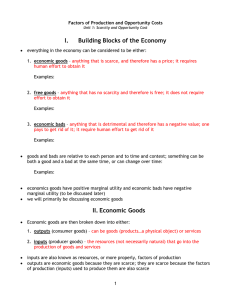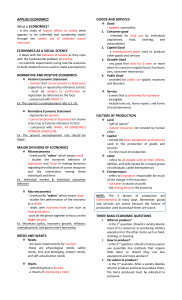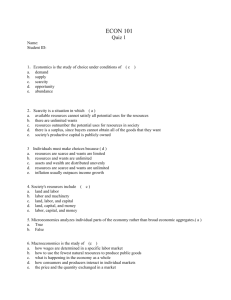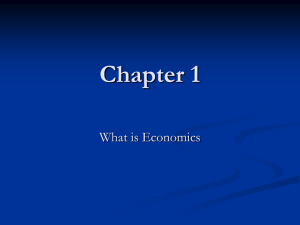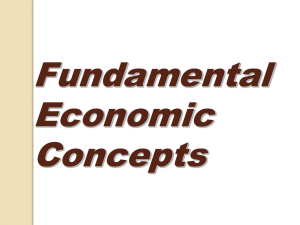GDP Notes
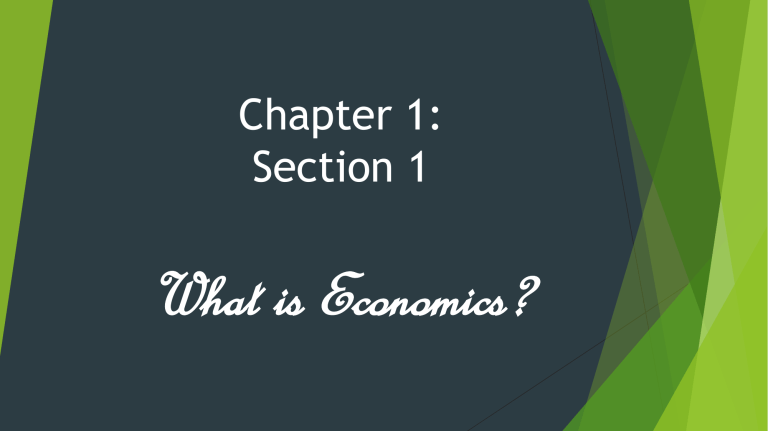
Chapter 1:
Section 1
What is Economics?
Scarcity and the Science of
Economics
Economics – study of how people try to satisfy unlimited & competing needs and wants.
Scarcity – basic economic problem that arises because people have unlimited wants with limited resources causing them to make various economic decisions on how to allocate resources efficiently.
Our Needs and Wants
Needs – basic requirements for survival
> food, clothing, shelter
Wants – something we would like to have
> car, watch, cell phone
Divided into two groups – goods and services depending on use
Goods – useful, tangible items (book, car)
Services – work performed for someone (computer repairman)
Types of Goods
Durable goods – last 3 yrs or more (cars, refrigerators)
Nondurable goods – last fewer than 3 yrs (food, clothes, pencils)
Consumer goods – intended for final use by individuals
(shoes, clothes, cars)
Capital goods – tools or goods used by business to produce other products (machinery, equipment)
Paradox of Value
Why some essentials such as water are cheaper than nonessentials, such diamonds.
Goods and services must be scarce & have usefulness. Diamonds are scarce & useful. Water on the other hand has usefulness, but not scarce.
Wealth
The accumulation of products that are tangible, scarce, have utility and are transferable.
N ations – natural resources, factories, stores, highways, money, etc.
Individuals – cars, houses, money, etc.
Questions all Nations Face
WHAT to Produce
HOW to Produce
FOR WHOM to Produce
Questions all Nations Face
WHAT to Produce
HOW to Produce
FOR WHOM to Produce
Why does this matter?
Gross Domestic Product
The monetary value of all final goods, services, and structures within a country’s borders in a 12month period. GDP is the most comprehensive measure of a nation’s total output and a key measure of its economic wealth.
